- Utility Menu
- Teaching at FAS
- Apply to Harvard
- Harvard College
- Academic Field Trips
Academic field trips provide educational opportunities outside of the classroom, allowing for course-related experiences beyond the Harvard community. Ordinarily, courses should be organized to meet only during their regularly-scheduled times, plus any additional times scheduled at the beginning of the term for sections and laboratories. Instructors who wish to include an academic field trip or project that would take students away from campus must obtain permission before the course may be listed in the my.harvard course search. Instructors must consult with the Office of Undergraduate Education about courses below the 200- or 2000-level and with the Dean of the Graduate School about courses at or above the 200- or 2000-level. While ordinarily, academic field trips should be optional, this policy applies to all Harvard-organized academic field trips, whether optional or required.
To request approval of an academic field trip or for assistance with questions, please email [email protected] .
General Guidelines
- Ordinarily, instructors should plan academic field trips that require no more than one class day away from the University in any given week. In addition, academic field trips may not require more than five total class days during the term, or ten total days including weekends. They should not be scheduled during reading or final exam periods.
- In all cases, students’ obligations to other courses meeting at their regularly-scheduled times must have priority over academic field trips.
- A faculty member, Course Instructor, or other authorized Harvard Officer must accompany students on all Harvard-organized academic field trips.
- Instructors should plan to secure funding for any academic field trip. Students should not incur any financial cost for course-related travel, whether optional or required.
- All Harvard affiliates interacting with minors as part of their work or scholarship at Harvard must follow the guidelines for interacting with minors (learn more at Youth Protection at Harvard ).
- Faculty must monitor elevated-risk destinations. Academic field trips to elevated-risk areas are not encouraged and require the permission of the Office of Undergraduate Education; if permitted, such trips may be subject to restrictions .
- Academic field trips to high-risk areas are prohibited (learn more at Harvard Global Support Services ).
Communication with Students
- Instructors must announce at the beginning of a course any requirements that would take students away from the University so that students may consider these requirements when choosing their courses.
- Detailed information about academic field trips should be included in the course syllabus and clearly articulated at the start of the term.
- Instructors should be aware that some students may be unable to participate in an academic field trip due to other academic or personal obligations, or because they may not have the necessary travel documents. Instructors must develop appropriate alternative activities for those students unable to participate in an academic field trip. Alternative activities should be clearly articulated by the instructor and documented in the course syllabus.
- Faculty should be aware that students with disabilities may request accommodations for academic field trips and should encourage students to contact the Disability Access Office (formally the AEO) to obtain assistance identifying and/or arranging services. In such cases, faculty leaders may need to confer with the student and/or the DAO about the field trip logistics.

Forms and Procedures Harvard Global Support Services: Forms & Checklists
- All students participating in an academic field trip will need to complete an applicable waiver and release form. The forms can be found at: Harvard Global Support Services
- All students participating in an international fieldtrip will need to complete the health clearance process. All information can be found within the Student Pre-Departure Requirements.
- All participating students must complete the Harvard Global Support Services pre-departure orientation module .
Disability Access Office
Engaged Scholarship Resources
General Education Field Trip Information
Harvard College International Travel Policies
Planning and Booking Travel (Airfare & Bus Charters)
Travel & Reimbursement Resources
Student Travel Forms
- Start of Term Information for Faculty
- Teaching and Learning Support
- AI Guidance & FAQs
- Mid-Semester Feedback in Blue
- Welcoming Visitors to Courses
- Academic Policy & Handbooks
- Instructional Support
- Funding for Teaching
- Resources for Concentrations
- Climate in the Curriculum Retreat
- Derek Bok Center for Teaching and Learning
Useful Links
Oue instructional support resources for departments, q course evaluations.
Explore the ideas, artifacts, people, and places that have shaped our history for nearly 400 years.
Tour updates
Harvard visitor center tours.
All tours are 45 to 60 minutes long. Registration is required in advance for both in-person and virtual tours. Weekly tour registration will be available every Friday. You can download the Visit Harvard mobile app on iOS and Android devices. During business hours you may purchase a Self-Guided Tour Map for $3 available in multiple languages.
For information about Harvard College Admissions tours for prospective students, visit their website .
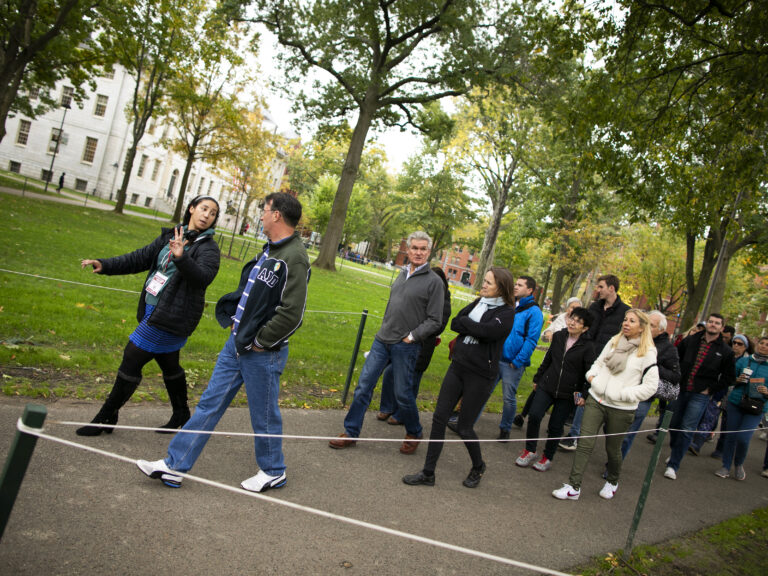
Official Historical Tour of Harvard
The free, student-led public walking tour through Harvard Yard provides a history of the University, general information, and a unique view on the students’ individual experience.
Register for the in-person tour
Visit Harvard mobile app
Explore Harvard with our free mobile app, featuring a collection of self-guided walking tours. Whichever tour you decide to embark on, you’ll be sure to learn something new.
Download the app on iOS and Android devices.
Historical Tour of Harvard
Learn the history behind well-known spots across Harvard’s campus! Each stop highlights iconic buildings, traditions, alumni, and much more.
Harvard Public Art & Culture Tour: Allston
Explore vibrant public art in Allston! You’ll encounter can’t-miss installations along Western Avenue and learn the stories behind them and their artists.
Harvard Public Art & Culture Tour: Cambridge
Discover a new side to our campus through an art-filled adventure! Explore outdoor art, famous architecture, renowned cultural institutions, and more.
Discover more Harvard tours
From nature walks to art galleries, these tour offerings include virtual options, in-person experiences, student and staff-led excursions, and more.
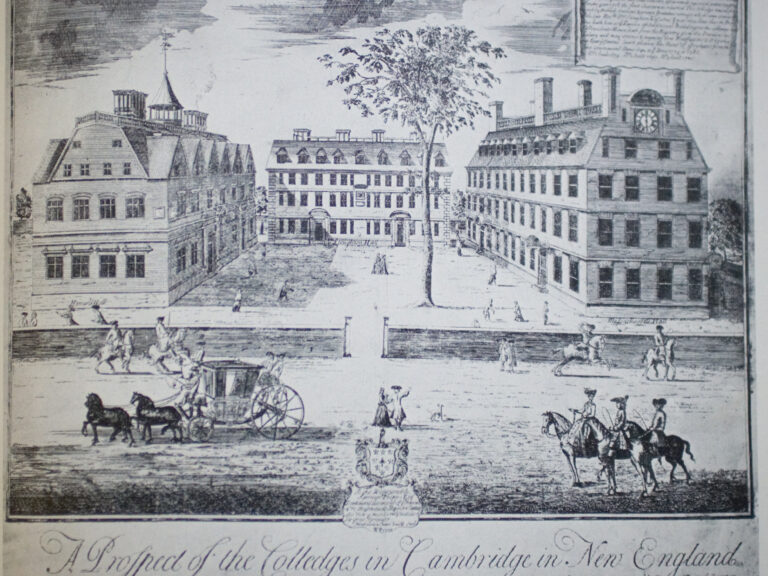
Tour spotlight
Harvard and the Legacy of Slavery
The Harvard and the Legacy of Slavery Walking Tour Experience explores Harvard University’s entanglements with the institution of slavery through a 10-stop tour around Harvard’s campus.
Learn more about the tour
Prospective students
Harvard College In-Person Campus Visit Options: in-person, student-led
Harvard College Virtual Tour Options: virtual
SEAS Tours Options: in-person, student-led
Harvard Business School Options: in-person, virtual, student-led, mobile
Harvard Law School Virtual Tour Video Options: virtual
Arts and culture
Harvard and the Legacy of Slavery Options: mobile
Harvard Art Museums: Student Guided Tours Options: in-person, student-led
Harvard Forest Field Trips & Tours Options: virtual, in-person, staff-led, self-guided
Arnold Arboretum: All Tours Options: in-person, virtual, staff-led, self-guided
Museums and libraries
Peabody Museum: All Tours Options: in-person, virtual, self-guided, staff-led
Houghton & Widener In-Person Tours Options: in-person, staff-led
Widener 360-Degree Virtual Tour Options: virtual, self-guided
Houghton Library Virtual Tour Options: virtual
Harvard Art Museums: Gallery Tours Options: in-person, self-guided, staff-led
Harvard Museums of Science & Culture: Virtual Tours Options: virtual, self-guided
Frequently asked questions
General tour information.
The Harvard University Visitor Center offers several different types of tours. For our in person tour offerings on campus, we provide the Official Historical Tour of Harvard. All tours are provided to the public for free and to private groups for a fee. Our tours typically run 45-60 minutes.
To view the schedule and register for our free public tours (virtual and in person), please visit our Eventbrite page . To request a virtual or in person private tour, visit this link .
We also offer a free self-guided historical tour through the Visit Harvard mobile app, which you can download on iOS and Android devices. You can take this self-guided tour on campus or from the comfort of your own home.
Information About Free In Person Tours
The in person Historical Tour of Harvard explores Harvard Yard. Tours depart from the Visitor Center which is located at the front desk in the Smith Campus Center. Our address is 1350 Massachusetts Avenue, Cambridge, MA 02138.
Registration for our in person tours must be made in advance. Registration is made available starting the Friday before your tour week. Parties of up to 14 persons can register for a free in person tour. Parties of 15-60 are encouraged to submit a request for a private tour .
Registered tour goers should arrive at the Visitor Center at least 15 minutes before your tour to check-in. Tours depart from the Smith Campus Center and end in Harvard Yard.
Information About the Visit Harvard Mobile App
Visit Harvard is a free mobile app by the Harvard Visitor Center that features a collection of self-guided tours centered around the Harvard University experience. The Visit Harvard mobile app can be downloaded by anyone with a smartphone, tablet, or desktop, to be enjoyed from wherever you might be visiting, whether it’s in-person at Harvard or from the comfort of your own home.
What tours are being offered in the mobile app? Currently on the app, visitors can take a mobile version of our popular in-person and virtual tour, the Historical Tour of Harvard.
How long is the mobile tour? This self-guided tour takes place across 14 mapped stops through Harvard’s campus. At a standard walking pace, it will take between 45-60 minutes to complete the 1 mile long tour.
Can I take the mobile tour in-person or virtually? The mobile tour is designed to be accessed in-person on Harvard University’s campus, starting at the Harvard Visitor Center, located at the Smith Campus Center in Harvard Square (1350 Massachusetts Ave, Cambridge, MA). It can also be viewed from the comfort of your own home. Simply download Visit Harvard in the app store, select the Historical Tour of Harvard, and begin your journey!
Where can I download the Visit Harvard mobile app? You can download the Visit Harvard mobile app on the Apple App Store and Google Play . There is also a desktop version of the app you can access here .
Learn More About the Harvard College Admissions Process
For more information about Harvard College Admissions, please visit their official website . Their contact information can be found here .
- Utility Menu
GA4 Tracking Code
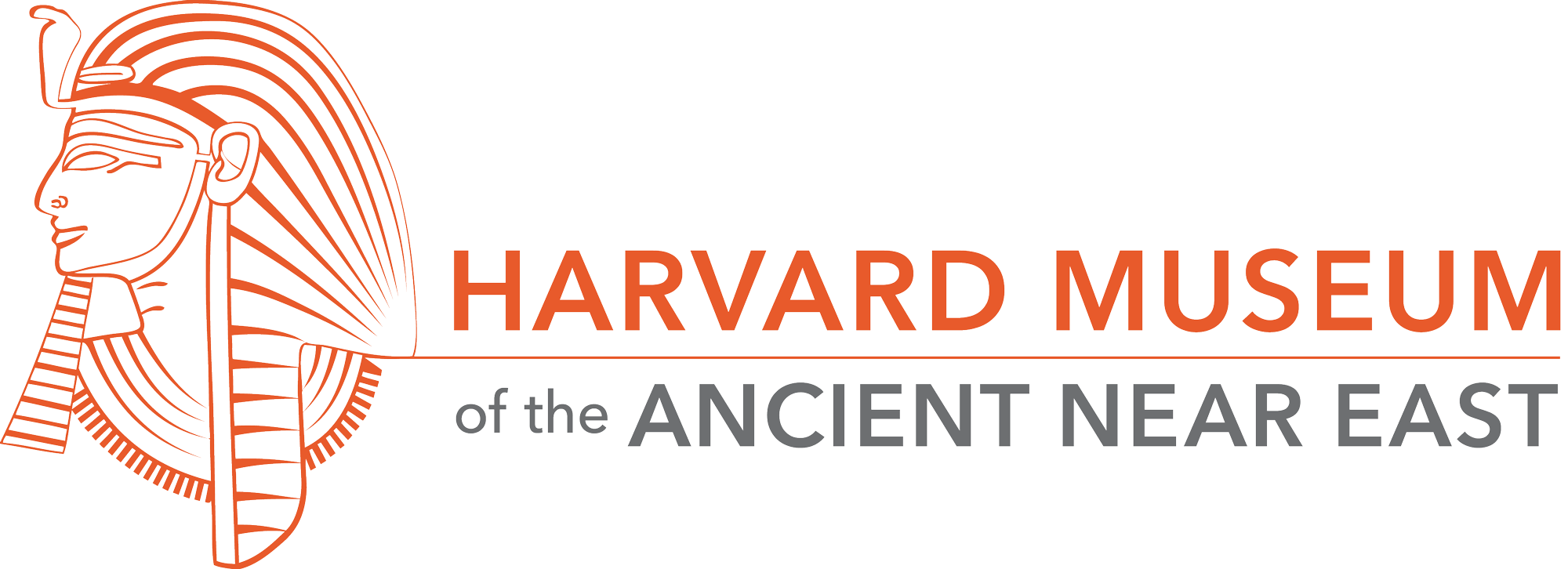
- In the News
- Departments and Centers
- Virtual Field Trips
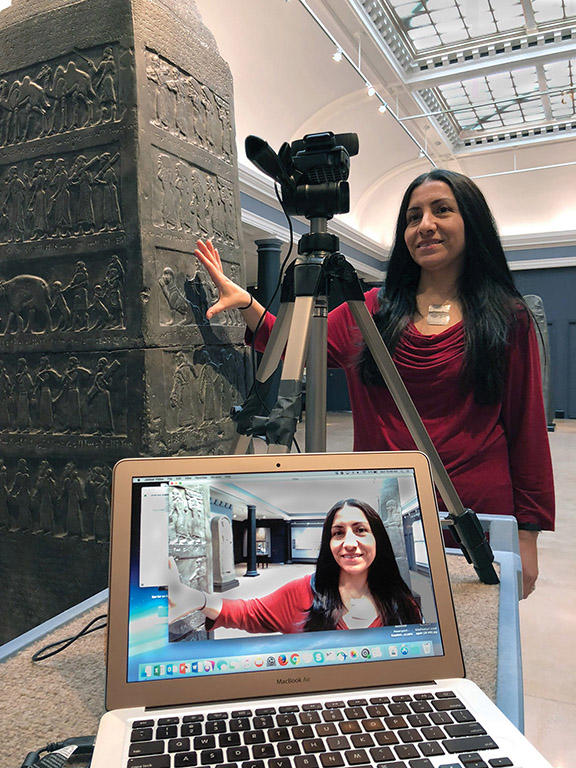
Mesopotamian Monuments Virtual Field Trip Grades 6-8, 50 minutes
“I absolutely love this virtual field trip…My students had great connections and the parents were extremely impressed. We will be back for another round next year for sure!” — 6 th Grade Teacher, Turlock, CA “My students had an opportunity to interrogate sources and build on what they have learned while also introducing the next exploration.” —7 th Grade Teacher, Jamestown, RI
“..the experience was visually stunning and highly engaging—the next best thing to being there in person!...The story of the Mesopotamians—however distant from our present here in western MA in time and place—is indeed "the story of us." Students felt that powerfully today as we examined artifacts carefully using visual thinking strategies and background knowledge we've been building in class. Thank you for your enthusiasm for teaching and inspiring young learners to think like historians and to be curious about the past and its connections to the present!" —6th Grade Teacher, North Adams, Massachusetts
Mesopotamian Monuments is a live virtual field trip for middle school students to investigate monuments from Sumer, Babylonia and Assyria exhibited at Harvard University. Guided by a museum educator using 3D technology, students observe and analyze sculptures from a classroom or their homes to understand the characteristics of these ancient river civilizations. The program introduces the Sumerian ruler Gudea, Hammurabi of Babylon and the Assyrian Kings Esharhaddon, Ashurnasirpal II and Shalmaneser III. Discussion includes stops at the monument of Hammurabis' code and a demonstration of cuneiform on clay. Free “Field Notebooks” available for download so that students may record details during the program and use for later reference. Free teacher resource with related links available for download. See the Virtual Field Trip Guide for simple technology requirements. Educator Admission Educators are invited to visit the museum to develop an assignment for their students’ visits. Fee Reduction
School groups may be eligible for a fee reduction based upon the percent of students receiving free and reduced lunch. Call (617) 495-3216 for an exact price quote.
Please complete the online Reservation Request Form to begin the reservations process. When the request has been reviewed, you will be contacted by the Education Department to complete the reservation.
For more information download the Virtual Field Trip Guide (DOCX), view the Teacher Resources , and the online Field Notes (PDF) or download the printable Field Notes (PDF) .
- Hours & Admission
- Touch Tour: Ancient Mesopotamia
- Accessibility
- Utility Menu
Department of Earth and Planetary Sciences
E1d1c96d5a69de8eba72ce00551b9ea1, undergraduate field experiences, department field trips.
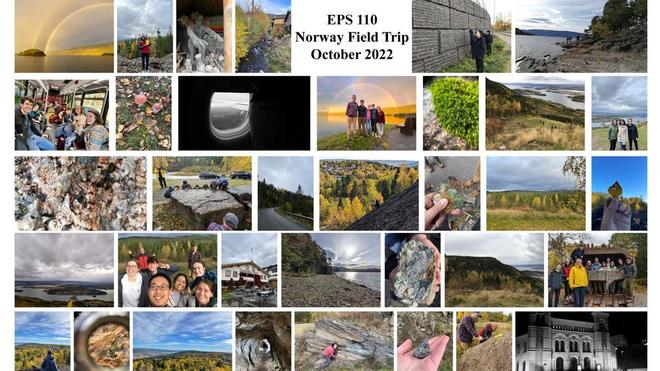
EPS 110 Norway October 2022 Trip
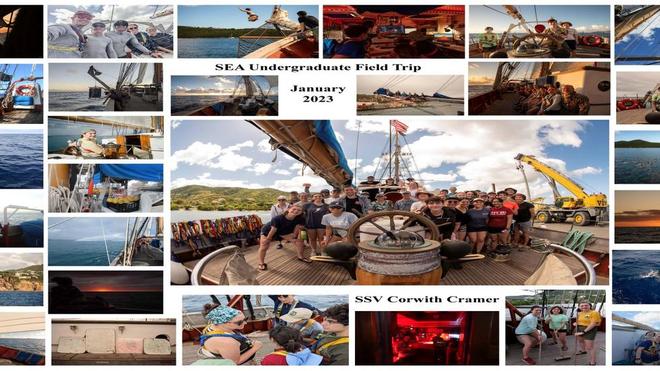
SEA St. Croix January 2023 Trip
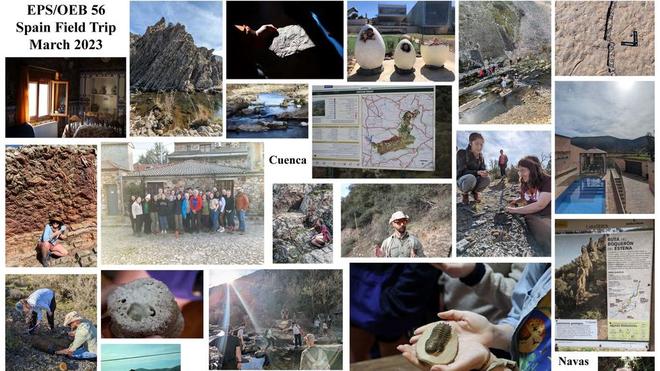
EPS 56 Spain March 2023 Trip
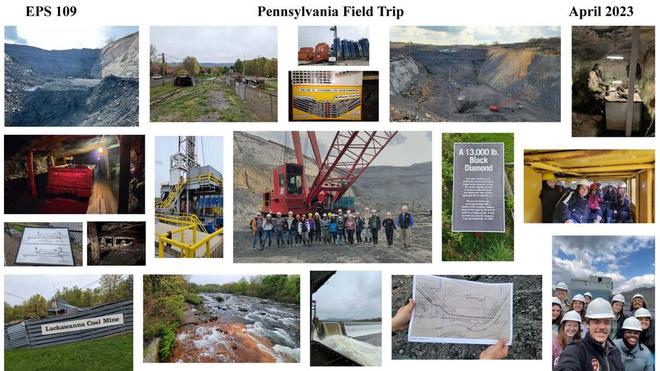
EPS 109 Pennsylvania April 2023 Trip
EPS students have the opportunity to see first-hand the science, systems, and earth processes they learn about in the classroom. This experiential learning component is key to helping students learn about the world around them and why it is so great to study earth sciences. In addition to the science, students make connections with other students and EPS faculty. There are many options for participation: EPS-sponsored annual field trips , participation in an approved field camp for credit, summer research opportunities , and EPS courses that include field trips throughout the semester.
Field Trips
All EPS concentrators are invited to participate in an EPS-sponsored annual field trip to learn about relevant earth sciences.
Undergraduate field trips are led by EPS faculty and staff. Contact Campbell Halligan ( [email protected] ) to learn more.
Undergraduate students can participate in an approved domestic or overseas field camp for credit as EPS 174. Field camp is usually taken after your sophomore or junior year, and lasts between 3-6 weeks. Additional field camps may be offered during January term. Field camp gives students hands-on experience in solving geologic problems in earth sciences. Students learn methods of obtaining, synthesizing, and interpreting field observations. Field schools are selected individually by students with the advice and approval of the instructor. Contact Campbell Halligan ( [email protected] ) to learn more.
Summer Research in Oceanography
Students are invited to apply for fellowships to do summer research in oceanography or join research cruises through an oceanographic institution, such as the Woods Hole Oceanographic Institution or the Scripps Institution of Oceanography . To learn more, please visit the Oceanography Committee's website .
- Undergraduate FAQ for 2023-2024
- Undergraduate Education
- Undergraduate Research
- Hawaii 2016
- Senior Thesis
- Undergraduate Forms
- Fall 2024 Courses
- Spring 2024 Courses
More Course Information
To search all FAS courses and cross register for courses at other Harvard schools or MIT, go to my.harvard.edu .
Graduate students may want to explore study opportunities and recommended curriculum by research area.
Undergraduate Quicklinks
Curricular Cheat Sheet
Environmental Sciences Handbook (Green Book )
Contact us to learn more about pursuing a concentration in Earth and Planetary Sciences.
Head Tutors
Roger Fu 617-384-6991 [email protected]
Ann Pearson 617-384-8392 [email protected]
Academic Programs Manager
Campbell Halligan 617-384-9760 [email protected]

- Research Topics
- Conducting Research
- Our Funding
- Researcher Profiles
- Site and Facilities
- Current Research
- Research Policies
- Data Archive
- GIS & Maps
- Sample Archive
- Remote Sensing
- History of the Harvard Forest Archives
- Research Publications
- Annual Reports
- Books for Sale
- Science & Policy Integration Project
- Program on Conservation Innovation
- Wildlands & Woodlands
- HF Land Management
- Sustainable Working Landscapes
- Bullard Fellowships
- Graduate Students
- Undergraduate Students
- LTER Student Research Funding
- Field Trips
- K-12 & Schoolyard LTER
- Volunteering
- In the Media
- Featured Projects
- Arts @ Harvard Forest
- Past News & Highlights
Tours & Conferences
- Fisher Museum
- Trails & Recreation
- Accessibility
- Greater Harvard Forest Community
- Mission & Values
- Affiliations
- Harvard Forest and the Petersham Community
- Indigenous Community Partnerships
- Diversity and Inclusion Statement
- Harvard Forest Code of Conduct
- Harvard Forest Strategic Plan (2020-2025)
- Give to Harvard Forest
Search form
You are here.
- User Fee Schedule
- Plan Your Visit
- Make a Reservation
- Administrative Pages
Guided Tour Fees
To cover staff time and facilities upkeep, we must charge all visiting groups a fee (see below). Thank you for your support as we continue to engage a wide variety of learners in the many lessons available in our Museum, research sites, and natural history trails.
- Learn more about tours and how to make a reservation.
TOUR FEES FOR 2024
- Guided, real-time virtual tour & Q&A (1 hour): $100 (Please email [email protected] to inquire.)
- Guided field trip (2-4 hours) for 1-25 visitors: $265
- Guided field trip for 26-49 visitors: $530 (Note: Maximum group size for K-12 field trips is 35 students)
Scholarships and Fee Waivers
For elementary school, university, and professional groups : if your group's budget cannot cover the full fee, we may be able to offer a fee reduction. Email [email protected] to inquire.
For middle and high school groups : A limited number of 7th to 12-grade field trip scholarships are available for a guided field trip (for up to 35 students) to explore the forest and Fisher Museum , and to collect data as part of an authentic ecological field study within the Schoolyard Ecology Program. Preference is given to schools with a high percentage of students receiving free or reduced lunch. The scholarship covers on-site student data collection materials and the tour fee. Reimbursement for busing is also available.
The Harvard Forest is a department of Harvard University's Faculty of Arts & Sciences and a member of the U.S. LTER Network supported by the National Science Foundation . Learn More about Our funders .
©2021 The President and Fellows of Harvard College . All rights reserved. Faculty of Arts and Sciences of Harvard University Harvard University Digital Accessibility Policy
Harvard Forest 324 North Main Street Petersham, MA 01366-9504 Tel (978) 724-3302
Fax (978) 724-3595
Harvard Forest Weather
Current Conditions & Data
Google Maps & Directions

Stay Connected
- f Follow us on Facebook
- t Follow @HarvardForest on Twitter
- i Follow @harvard.forest on Instagram
- f Subscribe via RSS
- e Sign up for our quarterly e-news
- Utility Menu
oebfancylogo2_0.jpeg

- Contact OEB
- Field Trips
OEB 51: Biology and Evolution of Invertebrate Animals Instructor: Gonzalo Giribet & Cassandra Extavour

OEB 52: Biology of Plants Instructors: Elena Kramer and N. Michele Holbrook

OEB 103: Systematics and Evolution Instructor: Charles Davis

OEB 11: Introduction to Tropical Biology Instructor: David Haig & Gonzalo Giribet

- Graduate Studies
- Summer Research Opportunities at Harvard
- Courses Overview
- Utility Menu
GA4 Tracking code

Engaging students via field trips, near and far

The benefits
While Hanken favors the traditional lecture for certain material, field trips expose students to people and ideas unavailable in the classroom setting, like interviewing museum directors about the challenges of curation and exhibit administration. The field exposure in Costa Rica, a trip largely sponsored by the MCZ, gives students an understanding of animals as living organisms, not just static entities—an immersive experience "we are uniquely qualified to offer."
The challenges
Hanken and his OEB 167 colleague Jonathan Losos experiment with assignments and itineraries in an effort to strike the right balance of structured and free time abroad. “Despite advance planning and deliberation, a lot of the success is due to trial and error.”
Takeaways and best practices
- Student-driven assignments augment experiential learning. Hanken requires students to submit interview questions for museum directors, and short video essays describing an assigned species, in advance of excursions to increase their engagement with the content and their investment in the experience.
- Shared experiences promote deeper engagement. Whether touring museums behind the scenes or getting caught in an unexpected tropical rainstorm, shared moments personalize the learning experience: “Many students who take lecture-only courses don’t even know one another’s names, let alone bond. Ditto for the instructor.”
- Don’t overlook the logistics. Hanken relies on University policies and resources to coordinate travel for two-dozen students and distributes critical itinerary information and emergency protocols via the course website to aid advance preparation. His unrelenting attention to fighting off mosquitos earned him the nickname "Dr. DEET."
Bottom line
Hanken’s field trips are inspired by his own scholarship (“I get to learn a lot”), but also his role as an educator: “These students stand to hold influential positions in the future. Whether or not they change their career trajectory based on these immersive experiences, they gain an understanding of an area of study they may not have otherwise.”
Related Research
Engaging the senses: object-based learning in higher education, object-based learning: a powerful pedagogy for higher education, related resources, ham faculty resources.
Looking to collaborate with the Harvard Art Museums in your course? Check out their Faculty...
Harvard University’s Commitment to Community Engagement
Check out this report of existing Harvard...
Who do I contact at my school for help with Canvas, lecture video, and other academic technologies?
Consult with your School’s local academic technology support staff ...
Featured Topics
Featured series.
A series of random questions answered by Harvard experts.
Explore the Gazette
Read the latest.

A space for researchers to meet, and AI and natural intelligence to do the same

A fresh take on must-see TV

Sean Kelly named dean of Arts & Humanities
Meiyi Yu and Hannah Thurlby lead a virtual field trip exploring birds in nature.
Photo courtesy of Harvard Ed Portal
Exploring from home
Abigail Hadfield
Harvard Correspondent
Harvard Ed Portal virtual field trips help students see the world
Allston-Brighton students have been able to travel around the world with no airline ticket required.
Virtual field trips through the Harvard Ed Portal have taken youngsters to five of the 10 wonders of the world, shown them a hummingbird in action, and on May 26 they’ll be visiting Carlsbad Cavern — all without leaving their home.
In March, many of the Ed Portal’s in-person programs were moved online. For Youth Programming , this meant finding a way to continue to mentor students and provide them with fun, engaging classes from afar.
Just this past month, Harvard undergraduates hosted the first segment of the two-part series “Colors of the Rainbow Art Exploration,” where Allston-Brighton students in grades three through five explored how various artists use color in their work, how different colors made them feel, and experimented with using color in their own paintings.
Zorayda Montemayor ’22 and Mika Simoncelli ’23 alternated sharing their computer screens with students and used the Google Arts & Culture Color Explorer to look at paintings that featured primary colors such as red, yellow, and blue.
“As a mentor, art was the area I always wanted to focus on, so it’s been fun to plan around what I’m interested in,” said Simoncelli.
The students shared how the colors made them feel when they looked at them, and how the each of the paintings portrayed different moods.
“My favorite color is yellow, and it makes me feel warm,” said one student. “Light blue makes me feel like I’m breathing fresh air,” said another. Students also used the online tool Sketchpad to make their own drawings.
“In person we do a lot of interesting learning and exploration, and with the online resources there are a lot of things to explore that we can’t see in person.” Meiyi Yu ’22
Simoncelli said she hopes the sessions have helped alleviate the burden of parents who are trying to balance working and taking care of their children full time.
Harvard Ed Portal Mentoring Coordinator Ethan Davies, who manages the online programs and facilitates children with their Zoom calls, said the virtual transition was unexpected and challenging.
“Transitioning to virtual programming came really quickly to our programs at the Ed Portal,” said Davies. “At the onset, I had some big questions about how our programming would fit into these new realities for families. I had no idea if they would be overwhelmed with the changes to school and family life, losing the capacity to engage in learning opportunities outside of the typical school curriculum. It has been really wonderful to see engagement continue in the virtual format.”
Last month, elementary school students once again explored the art world, this time taking a virtual field trip to the Museum of Modern Art .
Led by mentors Hannah Thurlby ’23 and Meiyi Yu ’22, the students shared their ideas about the paintings they viewed on through Thurlby’s screenshare.
Students examined a picture of Nicola Lopez’s “BK” from Pulled in Brooklyn , then worked together to compose a poem about the painting and how it made them feel. Each student sent their stanza in the Zoom video chat, Thurlby and Yu combined them, and the students decided to title their collective poem “The Giant Painting.”
They then worked together to write an imaginary story about another work of art, and used an online program called 3D Slash to make their own sculpture as a group.
Thurlby said both classes have gone very well, though they require a lot of advanced planning to keep students engaged over video calls. Yu added that the programs give the mentors a chance to try new lesson styles.
“Transitioning to virtual programming came really quickly to our programs at the Ed Portal. … It has been really wonderful to see engagement continue in the virtual format.” Ethan Davies, Harvard Ed Portal mentoring coordinator
More like this
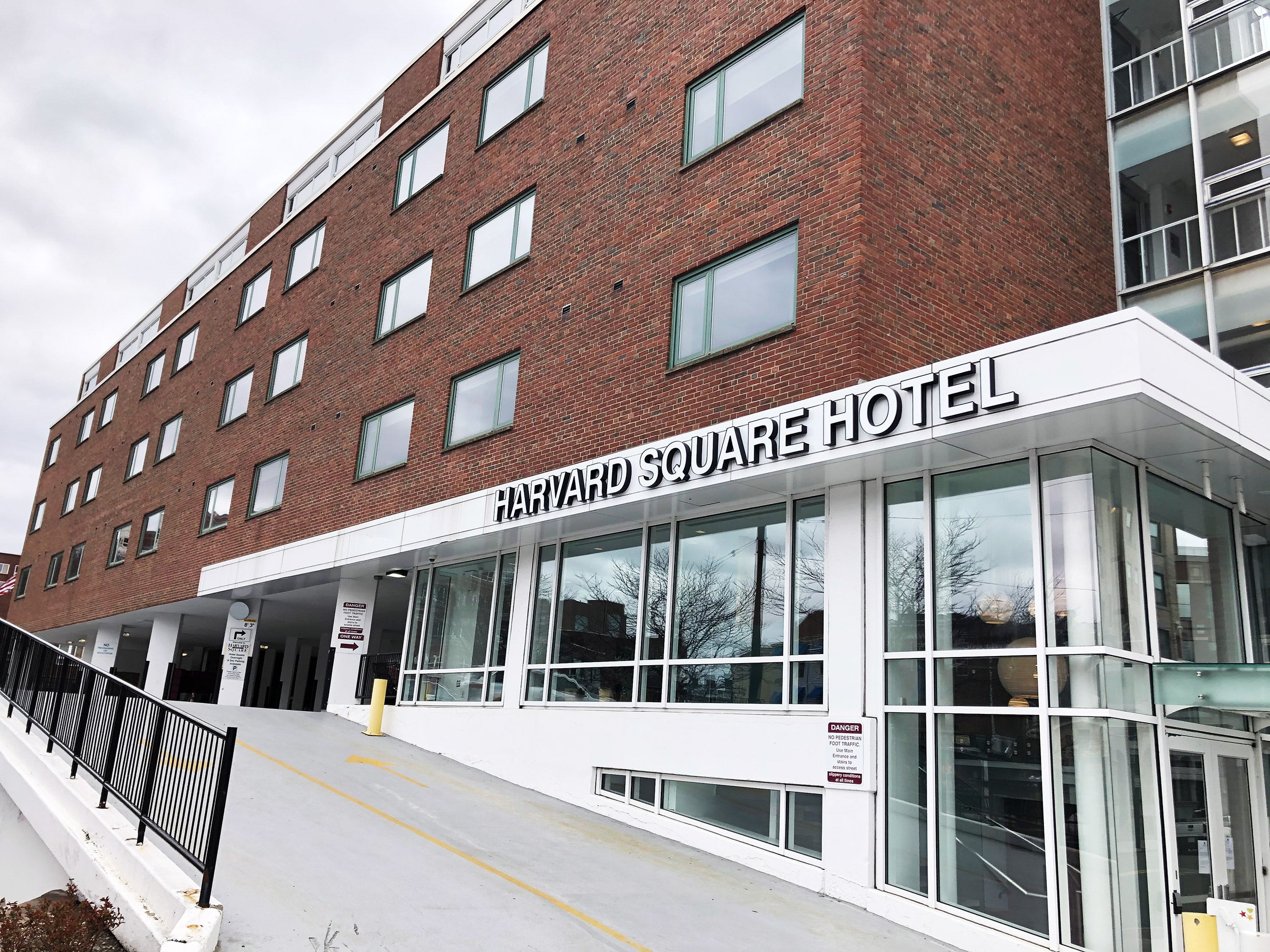
University community rallies to deal with COVID-19 crisis
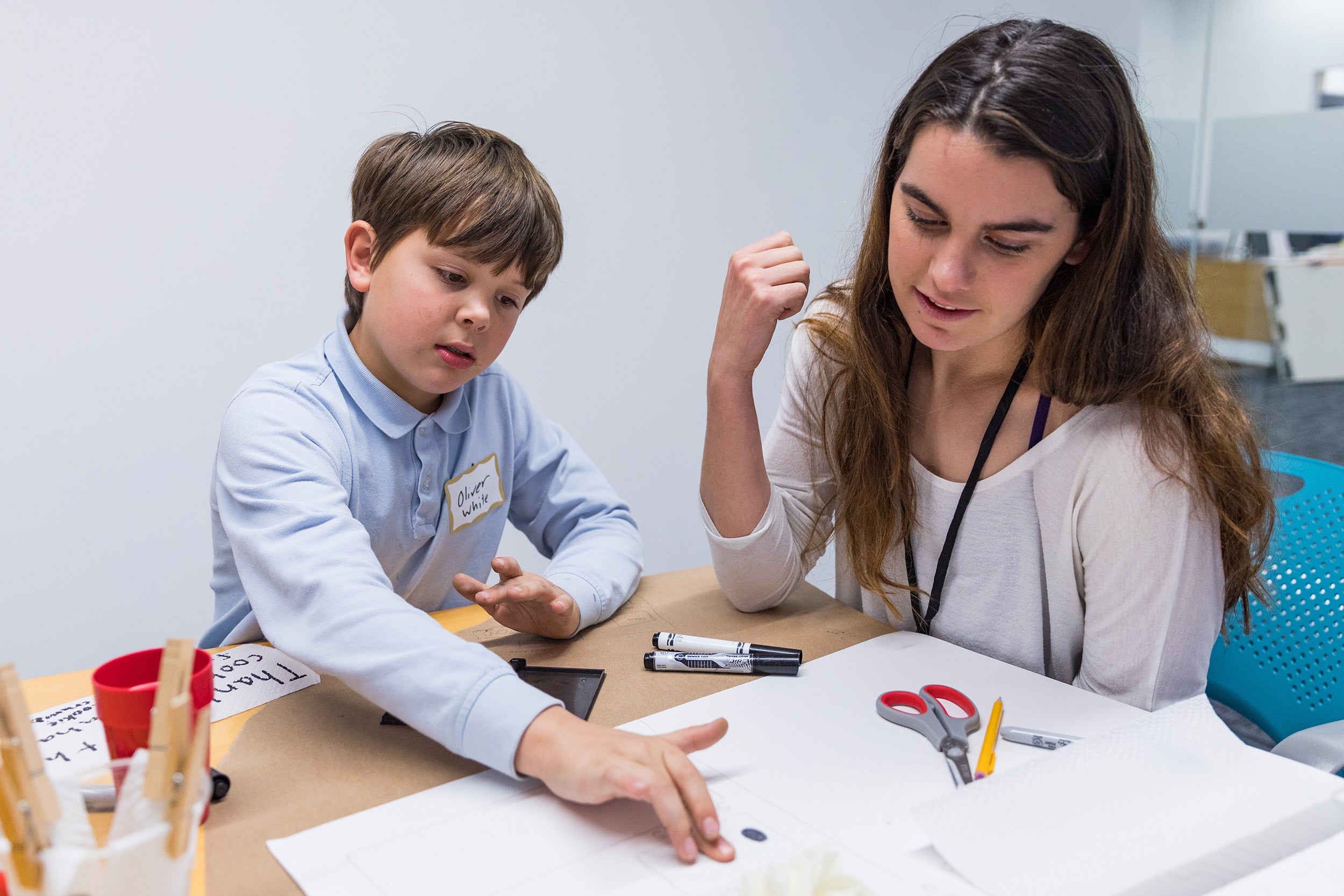
The lessons of teaching
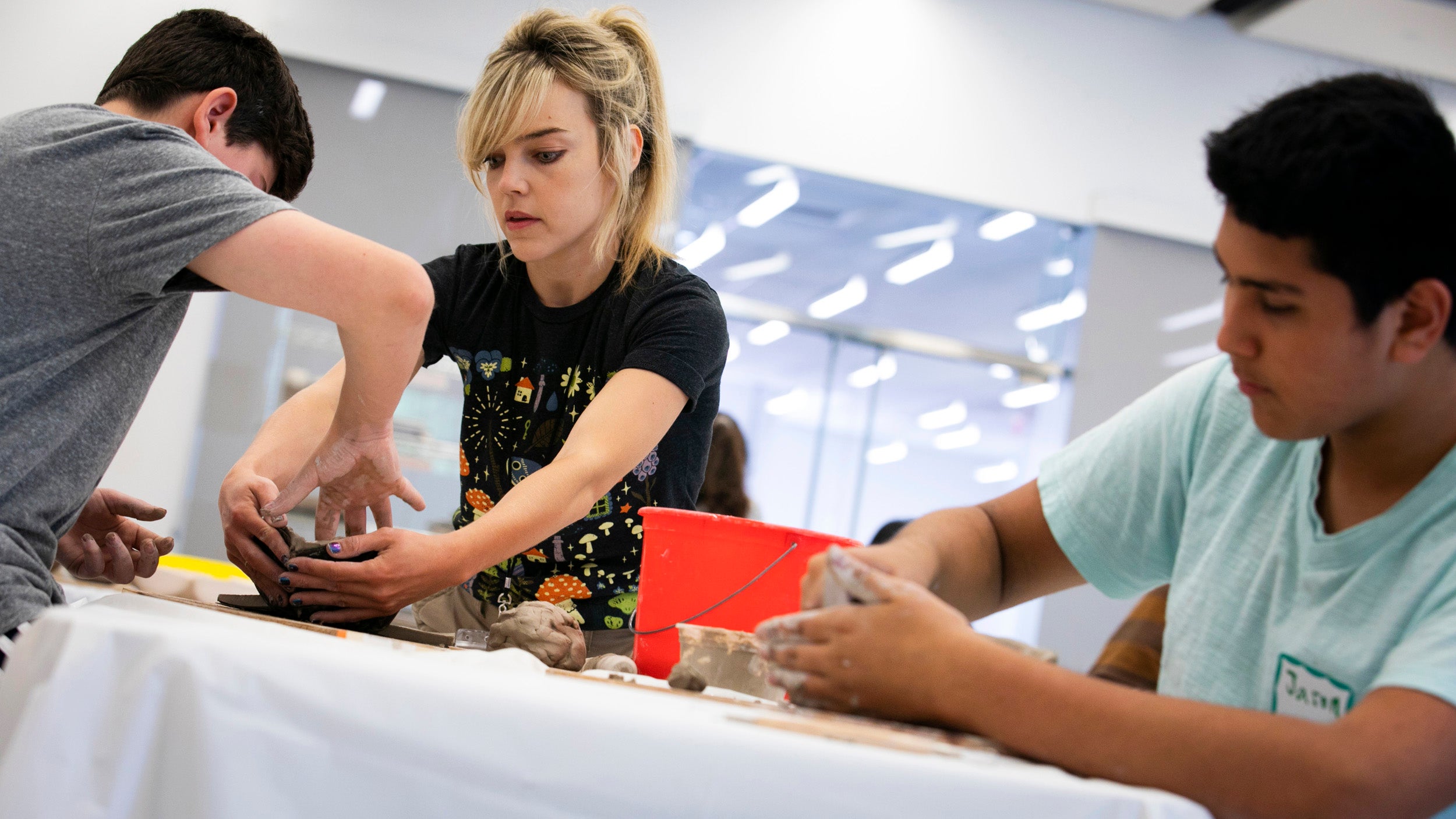
A season for exploration
“With the online field trips, it really brings something special to the program,” said Yu. “In person we do a lot of interesting learning and exploration, and with the online resources there are a lot of things to explore that we can’t see in person.”
Despite the difference in format, Davies said he is pleased students are still enthusiastic about learning new subjects.
“We are getting students enrolling in programs, showing up with a curiosity for learning that matches what we had in our in-person programming,” said Davies.
More recently, Allston-Brighton students took a nature-themed trip to explore the world of birds. Students spent their time on the field trip identifying bird calls, learning about hummingbirds, watching birds on live cams and taking quizzes, while interacting with instructors both on the call and in the accompanying Zoom chat.
On another trip, William Sutton ’23 and Andre Ferreira ’23 led a trip around the globe to visit five of the 10 wonders of the world, including Stonehenge, Petra, the Taj Mahal, Chichén-Itzá, and the Colosseum, using a combination of programs like Google Maps and AirPano to explore the sites.
“This is our first real run-through, and I was pleasantly surprised at the kids contributing pretty well,” said Sutton. “The biggest challenge is making sure the students feel engaged. Bringing them in is a lot harder when they’re not in person.”
Ferreira added that mentors are trying to maximize learning through the digital platform.
“I would much rather be with the kids themselves in person, but I think that we are making the best out of it with Zoom,” said Ferreira. “Sometimes there’s tech difficulties, but I think we make the best out of it. I like to see when the kids are active and want to participate.”
Upcoming youth programs include Shakespeare Takes the Stage, Explore the Animal Kingdom, and Spelunking Underground.
“I have been so thankful to our undergraduate population of students who have continued to engage with Allston-Brighton students despite major changes to their own personal and scholastic lives,” said Davies. “I’m thrilled that our undergrads are continuing to virtually join us in programming as they have returned to their homes across the country. I think it speaks to their commitment to personal community engagement.”
Share this article
You might like.
The new Kemper Institute buzzes with new code, arrows, numbers, ideas

Isabella Madrigal has a vision: storytelling that’s compelling, inspires better, more equitable world

Distinguished scholar of philosophy calls work of division ‘the soul of higher education’
Harvard announces return to required testing
Leading researchers cite strong evidence that testing expands opportunity
Women rarely die from heart problems, right? Ask Paula.
New book traces how medical establishment’s sexism, focus on men over centuries continues to endanger women’s health, lives
Finding right mix on campus speech policies
Legal, political scholars discuss balancing personal safety, constitutional rights, academic freedom amid roiling protests, cultural shifts


A Virtual Field Trip with NASA's Chandra X-ray Observatory
As NASA’s premier X-ray telescope, Chandra gives us a powerful tool to investigate hot regions of the Universe, from black holes, to exploding stars, colliding galaxies and more. Because X-rays are absorbed by Earth’s atmosphere, Chandra must orbit in space to do its job.

Chandra means "moon" or "luminous" in Sanskrit.

On July 23, 1999, under the command of Col. Eileen Collins, the shuttle lifted off the launch pad at the Kennedy Space Center in Florida. Its mission: to carry NASA’s Chandra X-ray Observatory into space.

Chandra has been helping scientists ever since to better understand these turbulent regions of space, answering fundamental questions about the origin, evolution, and destiny of our Universe. The Chandra's Operations Control Center (OCC) in Burlington, MA,* oversees the Chandra spacecraft and ensures its health and safety.
Chandra staff design observing plans for efficient scheduling of the observatory. The time spent moving Chandra from looking at one target to another is minimized, while avoiding radiation from the Sun and making sure that Chandra stays healthy.
The Smithsonian Astrophysical Observatory in Cambridge, MA, hosts the Chandra X-ray Center which operates the satellite, processes the data, and distributes it to scientists around the world for analysis.
Chandra travels about a third of the way to the Moon at its farthest distance from Earth in order to get as much observing time of the X-ray Universe as possible.

Chandra was named after the late Indian-American Nobel laureate, Subrahmanyan Chandrasekhar (pronounced: su/bra/mon'/yon chandra/say/kar). Known to the world as Chandra (which means "moon" or "luminous" in Sanskrit), he was widely regarded as one of the foremost astrophysicists of the twentieth century.

1. The X-ray telescope, whose mirrors focus X-rays from celestial objects
2. The science instruments which record the X-rays so that X-ray images can be produced and analyzed
3. The spacecraft, which provides the environment necessary for the telescope and the instruments to work.
Chandra carries four very sensitive mirrors nested inside each other. The energetic X-rays strike the insides of the hollow shells and are focussed onto electronic detectors at the end of the of the telescope. The mirrors on Chandra are the largest, most precisely shaped and aligned, and smoothest mirrors ever constructed.
22 years (so far) in operation
25 trillion bytes of data collected
3,00 trips around Earth
3.8 million lines of code written to operate, collect and analyze data
2.4 billion kilometers traveled
14 meters in length - about the size of school bus
63.5 hours to take one trip around Earth

Try it yourself!

Let’s head out from the Milky Way!

- Utility Menu
Environmental Science & Public Policy
Field trips.

PAST FIELD TRIPS
Summer 2017: China’s Environmental Challenges: Summer Course in Beijing
In August 2017 thirty Harvard students participated in "China’s Environmental Challenges: Summer Course in Beijing," a two-week intensive summer program on China's environmental challenges. This program, sponsored by the the Harvard-China Project and the ESPP program, offered students a unique chance to explore various environmental and climate change issues in China, including clean energy, air pollution, waste water management, and urban sustainability, through: site visits to clean tech companies, water and power facilities, and a government climate institute; guest talks by local environmental actors; and academic lectures and discussions led by Tsinghua and Harvard faculty.
-----------------------------------------------------------------------------------------------------------------
Winter 2015: Sevilleta Field Station, New Mexico
Graduate School of Design professor Richard Forman led the January 2015 trip to the Sevilleta Field Station, operated by the University of New Mexico and located in central New Mexico (60 miles south of Albuquerque). Concentrators spent a week exploring the diverse ecological and biological landscape of the American Southwest. The station lies at the junction of several major ecosystems, and researchers have access to a broad diversity of habitats, including the Chihuanhuan Desert grasslands and shrublands; Colorado Plateau shrub-steppe; juniper savanna; the riparian Rio Grande corridor; and more.
Winter 2014: Archbold Biological Station, Florida
In January 2014 concentrators traveled to the Archbold Biological Station, located seven miles south of Lake Placid, Florida, for a week of ecological studies on human-imprinted areas and land-use planning. Led by Professor Richard Forman and Professor James McCarthy, the students visited a variety of habitats; evaluated competing land uses; and developed a land-use plan for a changing Highlands County, Florida landscape, which was later presented to a group of local townspeople.
----------------------------------------------------------------------------------------------------------------- Winter 2013: Sailing School vessel Corwith Cramer, Florida
In January 2013 Concentrators were given the opportunity to spend J-Term aboard the Sailing School vessel Corwith Cramer, operated by the Sea Education Association (SEA) in Woods Hole. Participants met the ship in Key West, Florida and sailed across the Gulf Stream and back to Key West. During their experience, students took advantage of the state-of-the-art research tools, processing oceanographic samples, standing round-the-clock shifts and delving into navigation, science, and becoming members of the crew. All costs of the trip (including roundtrip transportation from Boston to Key West) were covered. Please see the slideshow above for photos from the experience.
- Concentration Requirements
- Declaring ESPP as your Concentration
- Senior Thesis
- ESPP Secondary Field
- Energy & Environment Secondary Field

A Virtual Field Trip: Stars of the Milky Way
Let's move out from discovering how Chandra works, to exploring some of the exciting science to come out of the observatory.
NASA’s Chandra X-ray Observatory has imaged the spectacular, glowing remains of exploded stars, and traced the dispersal of elements. Chandra has observed the region around the supermassive black hole in the center of our Milky Way, and found black holes across the Universe. Chandra has also traced the separation of dark matter from normal matter in the collision of galaxies in a cluster and is contributing to both dark matter and dark energy studies. Let’s dive in deeper to some celestial objects, in 3D.
Travel to the supernova remnant Cassiopeia A, or take a trip to the Crab Nebula pulsar. Explore these two cosmic objects in virtual reality, learn more about their science, and try some hands-on activities related to exploded stars and stellar evolution.

6,500 light years from Earth, the Crab Nebula contains the remains of an exploded star. The powerhouse "engine" energizing the Crab system is a pulsar (a rapidly spinning neutron star), which is sending out bursts of radiation 30 times a second.
In addition to representing the information in 3D, we can also translate it into sound.
In Experts used X-ray data from Chandra to create a 3D representation of the Crab to explore. The structures revealed include the pulsar and a ringed disk of energized material, with jets of particles that fire off from opposite ends of the energetic pulsar.

Try it yourself!

One of the most famous bodies in the night sky is the Cassiopeia A supernova remnant, located about 11,000 light years away from Earth. This object was created when a massive star ran out of fuel and exploded, hurtling its outer layers into space at millions of miles per hour. Because this material has been superheated, it glows brightly in X-ray light that is more energetic than what humans can see with their eyes.

This data of Cassiopeia A was captured by Chandra and combined with infrared and visible light to make the first ever 3D model of an exploded star. The colors shown in the 3D model map locations of iron, silicon, sulfur and other chemical elements in the remnant.

Harvard Alumni Travels
Discover, learn, and connect as you travel the world with Harvard study leaders and fellow alumni! To learn more about our programs, contact us at [email protected] or call (617) 496-0806.

Treasures of Northern Europe, Medieval to Modern
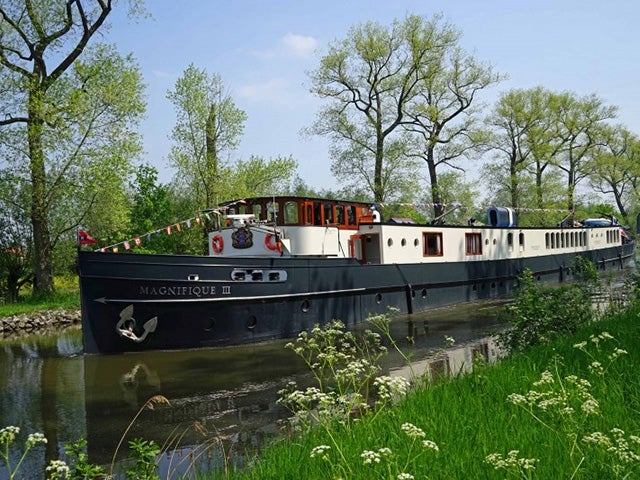
Holland & Belgium
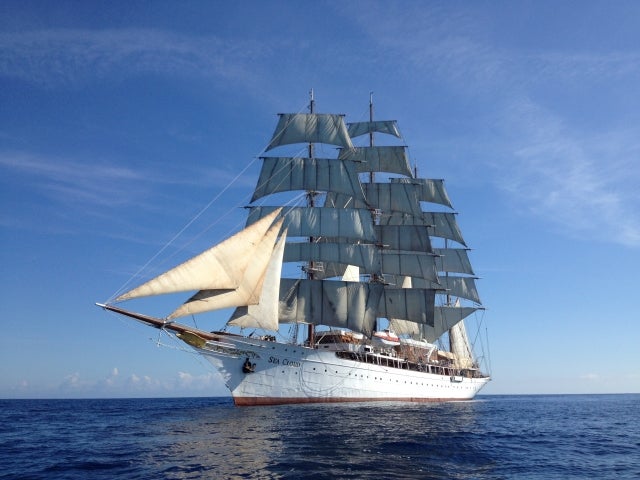
Cruising the French & Italian Rivieras

Japan by Sea on Heritage Adventurer

Himalayan Kingdoms

Exploring the Wine Regions of Bordeaux, San Sebastián & Rioja
The lares adventure trek.
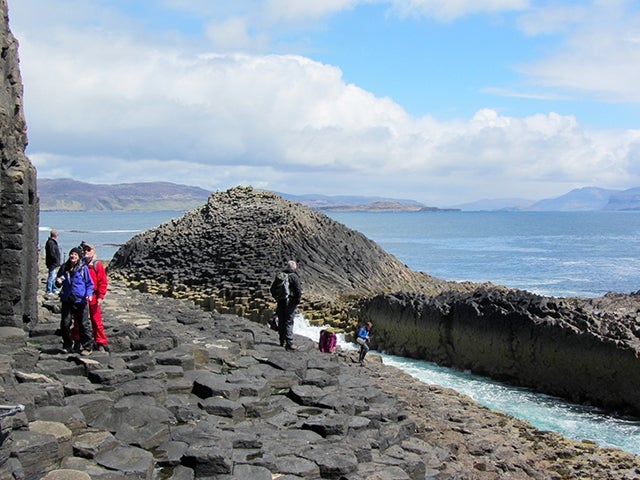
Scotland: Hiking the Islands of the Hebrides
Darwin's galápagos: a family journey of discovery.

Cruising the Adriatic
Mongolia: land of the blue sky.

Japan Family Adventure
Alaska family adventure.

Alpine Splendor
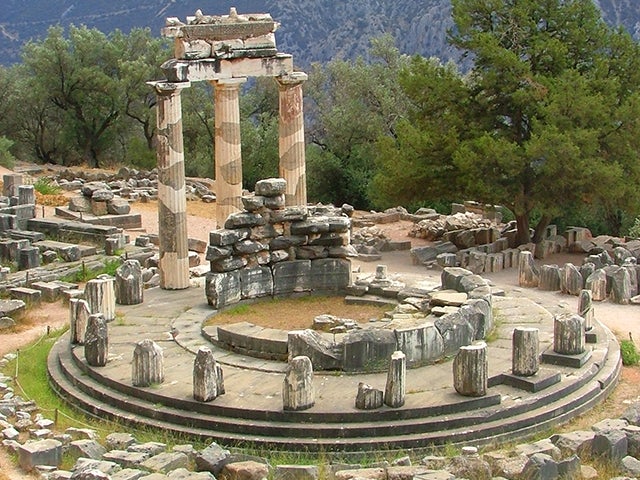
Cruising the Mediterranean: Athens to Rome
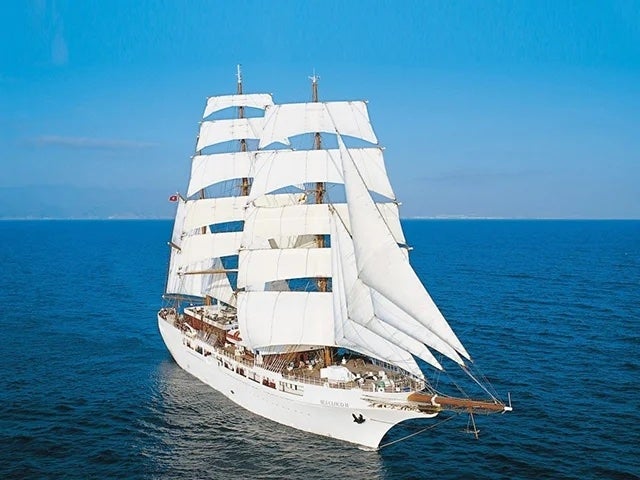
Western Mediterranean Civilizations
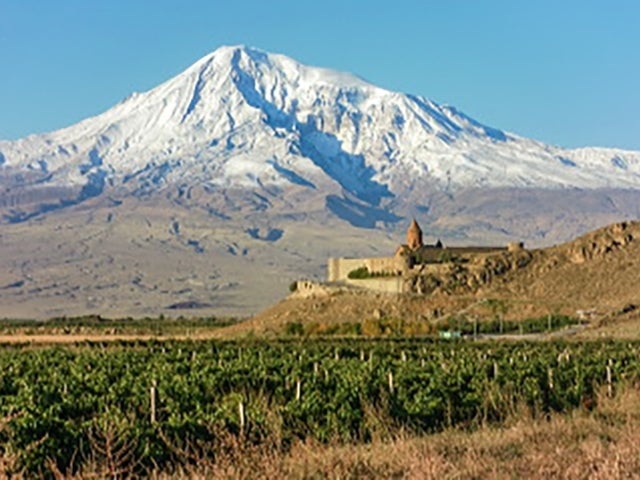
Exploring the South Caucasus (Azerbaijan, Georgia, Armenia)
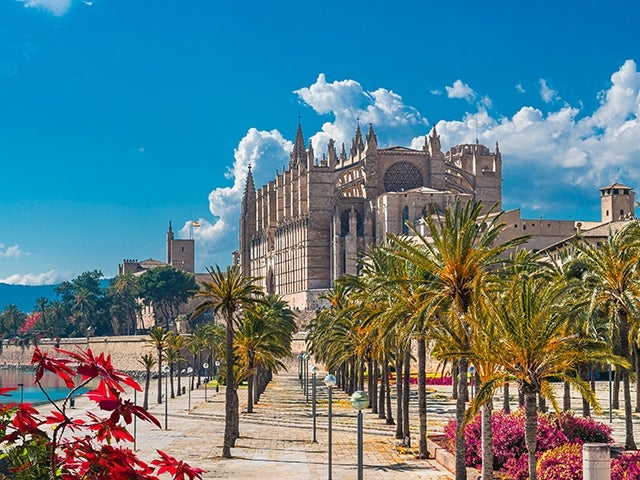
Catalan Interlude

Legendary Turkey
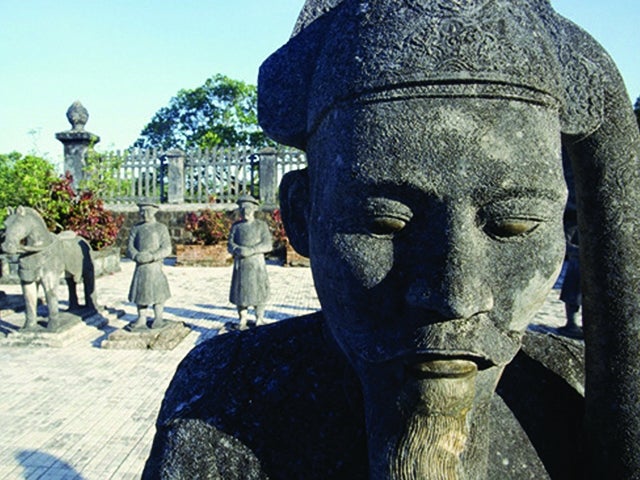
Journey through Vietnam
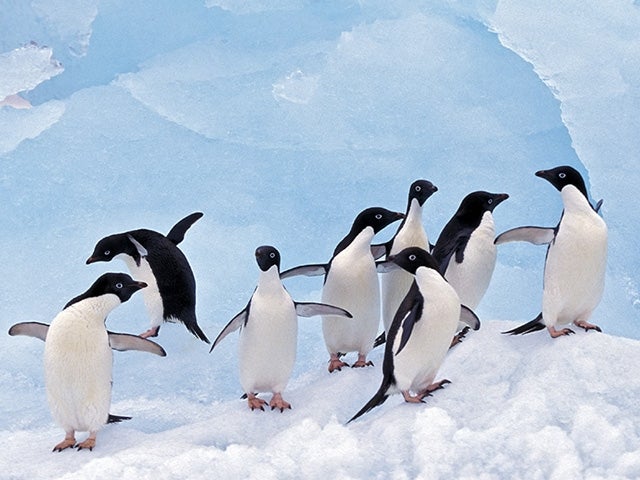
Antarctica & South Georgia on L'Austral
Cuba's Cultural Heritage
Family tanzania safari.
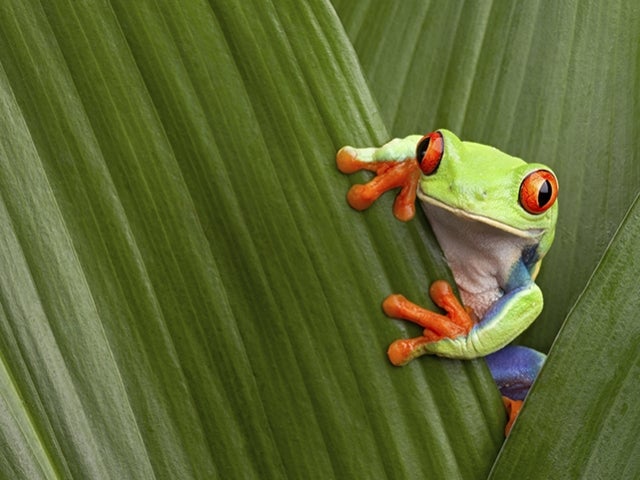
Costa Rica Family Adventure
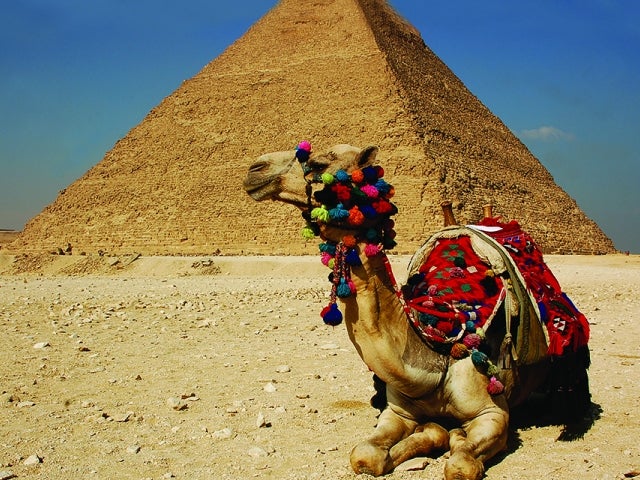
Egypt & the Nile: A Family Friendly Journey
A Family Program in Cuba

Southeast Asia Odyssey

Bali to Phuket on Le Lapérouse
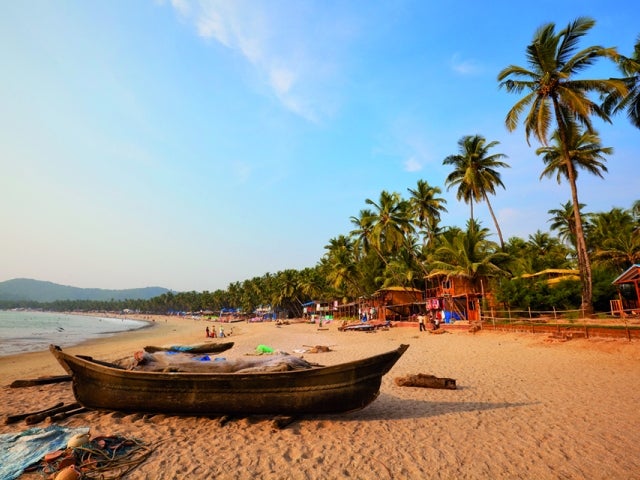
Colombo to Mumbai on Le Lapérouse
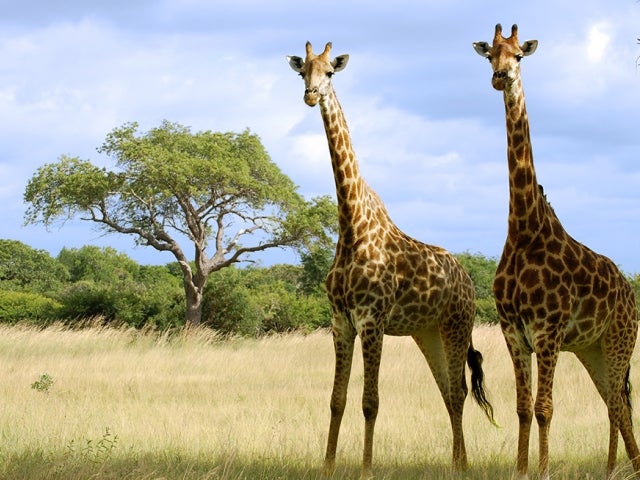
Southern Africa Odyssey
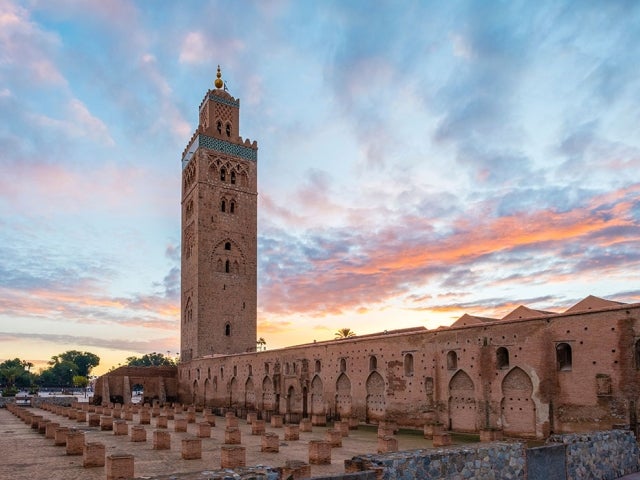
Moroccan Discovery

Epic Journey Across Time: Cyprus, Rhodes & the Turquoise Coast on Emerald Azzurra
Central asia's five 'stans.
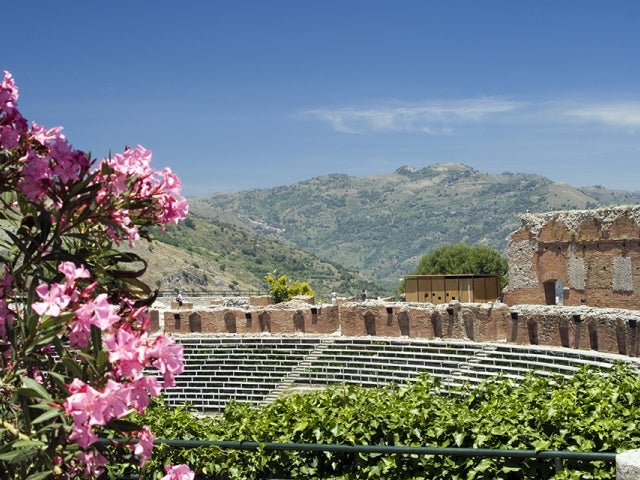
Cruising The Mediterranean: Athens to Naples
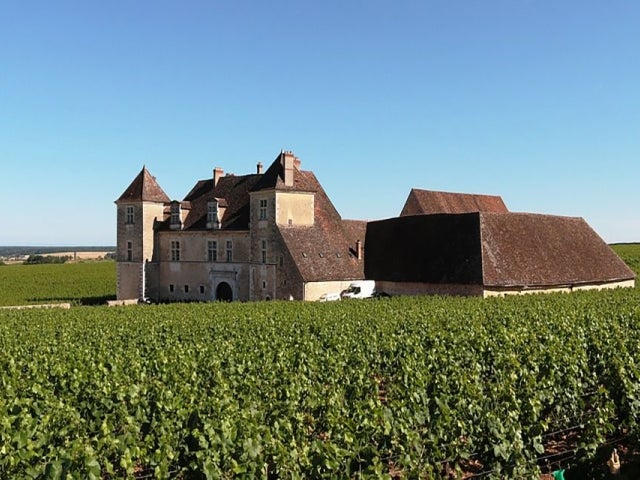
Journey Through Britain

Mysteries of Indonesia & Papua New Guinea on Le Soléal

Southern Italy & Sicily

Legendary Türkiye
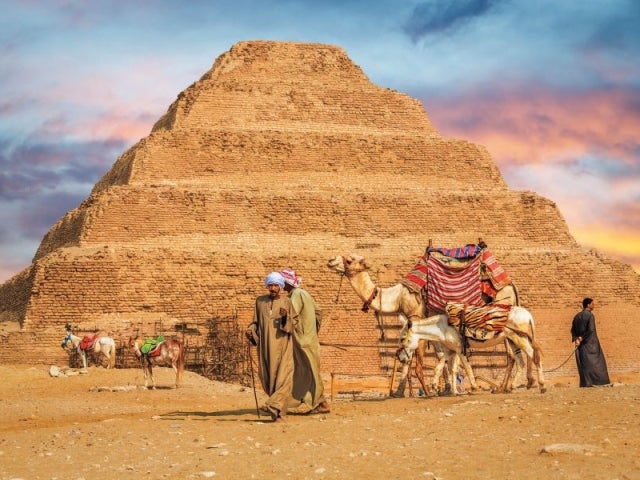
Egypt & the Eternal Nile

The Department of Global Health and Population hosts several international travel courses during WinterSession. These experiences offer graduate students the unique opportunity to apply the academic frameworks and tools learned throughout the year in a dynamic and professional environment by simulating the work that they may engage in after graduation.
Contact Information
Allison Conary Senior Education Coordinator Department of Global Health and Population
- Utility Menu
GA4 Tracking Code
bok_logo_2-02_-_harvard_left.png

Library Podcast
After field trips to three different museums, students create a short 90 second podcast in which they discuss one object encountered. through this project, students engage with primary artifacts and practice their communication skills..
... Read more about Library Podcast
Visual Arts in Dermatology: Training the Eye
A novel yearly course introducing observational skills to dermatology residents, using visual thinking strategies (vts).
... Read more about Visual Arts in Dermatology: Training the Eye
Impact of Buildings on Health-Term Activity
This instructor leverages field trips to the Boston area to reinforce weekly lectures on the impact of buildings to environmental health. ... Read more about Impact of Buildings on Health-Term Activity
Impromptu Public Speaking Simulation
This activity equips students with communication skills necessary for impromptu public speaking.... Read more about Impromptu Public Speaking Simulation
Hunger Challenge - Living on SNAP
This exercise requires students to think about the logistics of meal planning and shopping on a SNAP budget, and to imagine the material and emotional realities of poverty.... Read more about Hunger Challenge - Living on SNAP
In-Flight Mechanics Experiments
Students conducted physics experiments aboard a small airplane piloted by the instructor in order to better understand aerodynamics..
... Read more about In-Flight Mechanics Experiments
Phineas Gage & the Social Brain Field Trip
Students in a course on the brain and social interaction visit the museum housing phineas gage’s skull and discuss it as a case study of the effects of brain injury on social behavior..
... Read more about Phineas Gage & the Social Brain Field Trip
Greenhouse Gas Inventory and Reduction Plan
Students develop a greenhouse gas inventory and reduction plan for a business, non-profit, government entity, or other institution by working with the organization to understand their sources of emissions and find practical methods of reducing them. .
... Read more about Greenhouse Gas Inventory and Reduction Plan
Dying in a New World
Students visit the old burial ground near harvard square to learn about early american gravestones and the cultural and artistic traditions that affected them..
... Read more about Dying in a New World
French and the Community
In french 59: french and the community, undergraduates teach french to haitian immigrant children in order to improve their own french skills and to both serve and learn about the haitian-american community..
... Read more about French and the Community
Primitive Navigation - Sun Altitude
... Read more about Primitive Navigation - Sun Altitude
Primitive Navigation - Navigational Stars
This activity was made by john huth for his primitive navigation class, so his students will have practical experience working with primitive navigation tools through this experiment. this activity will help students understand navigational stars..
... Read more about Primitive Navigation - Navigational Stars
Primitive Navigation - Landmark Navigation
Using their knowledge of the use of a compass, triangulation, and uncertainties, students set off to walk to the bridge at the end of jfk street in harvard. .
... Read more about Primitive Navigation - Landmark Navigation
Primitive Navigation - Coordinate System
Students go to the harvard chapel and establish a coordinate system of 'easting' and 'northing' using simply their bodies, their environments, and a notepad. .
... Read more about Primitive Navigation - Coordinate System
Primitive Navigation Final Project
The primitive navigation final project will involve researching a topic that requires data gathering and analysis, along with research into the history associated with that topic. the final presentation will take the form of a video that will be posted online..
... Read more about Primitive Navigation Final Project
FIELD TRIP\”Jewel and I come up from the field, following the path in single file. Although I am fifteen feet ahead of him, anyone watching us from the cottonhouse can see Jewel\’s frayed and broken straw hat a full head above my own.The path runs straight as a plumb-line, worn smooth by feet and baked brick-hard by July, between the green rows of laidby cotton, to the cottonhouse in the center of the field, where it turns and circles the cottonhouse at four soft right angles and goes on across the field again, worn so by feet in fading precision.The cottonhouse is of rough logs, from between which the chinking has long fallen. Square, with a broken roof set at a single pitch, it leans in empty and shimmering dilapidation in the sunlight, a single broad window in two opposite walls giving onto the approaches of the path. When we reach it I turn and follow the path which circles the house. Jewel, fifteen feet behind me, looking straight ahead, steps in a single stride through the window. Still staring straight ahead, his pale eyes like wood set into his wooden face, he crosses the floor in four strides with the rigid gravity of a cigar store Indian dressed in patched overalls and endued with life from the hips down, and steps in a single stride through the opposite window and into the path again just as I come around the corner. In single file and five feet apart and Jewel now in front, we go on up the path toward the foot of the bluff.\”In these first three paragraphs of As I Lay Dying, William Faulkner authors an encyclopedic insinuation of all those conditions essential to the shaping of an enduring architectural experience.Remarkably this includes: Time/timingInterior and exterior spatial sequenceProcessionContrastTactilityLight/light effectsPerspectival phenomenonHistory of placeCulture of placeStructureInterior and exterior formSpeed/cadenceGeometryTechtonicsDimensionSignifiersSite/sittingEven more remarkably, this episodic moment involves only two characters, (one observing, one observed), experiencing a one room structure set in a singular landscape along a lone path.A brief transition extraordinarily infused with deep meaning, spatial complexity and contextual exactitude.The purpose of this studio will be to make an architecture of transition inscribed with great meaning and power where experiences of spatial sequence, procession, contrast, tactility and sectional difference are defined by and employed within a radical but singular form and space.
Harvard University

Track & Field 4/18/2024 10:30:00 AM
Track & Field Travels Across the Country This Weekend
- Nine top-five performances highlighted Harvard's last round of competition.
- At the 2024 Duke Invitational, junior Izzy Goudros made a splash in the women's heptathlon, taking first place with 5,765 points, a new meet record and five points away from breaking her own school record.
- First place finishes in the 100 hurdles, 200m, long jump, and 800m lifted Goudros to the top of the podium, as the Canadian set a new personal best in the 800m (2:15.53).
- In the national performance list, Goudros ranks fifth in the women's heptathlon.
- Over in Storrs, Conn., first-year Timi Esan ran a new personal-best 10.38 in the men's 100m dash, as his time ranks second in the Ivy League this season.
- Junior Joe Ewing owns the second-fastest men's 1,500m time in the Ivy League this season with a time of 3:40.43.
- In the men's 10,000m, senior Acer Iverson sits alone at the top of the Ivy League leaderboard with his result from the Raleigh Relays in March (28:36.16).
- The defending NCAA Champion in the hammer throw, junior Kenneth Ikeji ranks fifth in the nation in the men's hammer throw this year with his toss of 72.94m (239'4").
- Junior Victoria Bossong is enjoying a breakout season in the women's 800m, as her time of 2:00.92 from the Pepsi Florida Relays is the fourth-fastest in the country.
Players Mentioned

Victoria Bossong

Izzy Goudros

Kenneth Ikeji

Acer Iverson

Thanks for visiting !
The use of software that blocks ads hinders our ability to serve you the content you came here to enjoy.
We ask that you consider turning off your ad blocker so we can deliver you the best experience possible while you are here.
Thank you for your support!
was not found

- Presidential Search
- Editor's Pick

Cambridge Residents Slam Council Proposal to Delay Bike Lane Construction

‘Gender-Affirming Slay Fest’: Harvard College QSA Hosts Annual Queer Prom

‘Not Being Nerds’: Harvard Students Dance to Tinashe at Yardfest

Wrongful Death Trial Against CAMHS Employee Over 2015 Student Suicide To Begin Tuesday

Cornel West, Harvard Affiliates Call for University to Divest from ‘Israeli Apartheid’ at Rally
Radcliffe Crew Prepares for Moscow After Easy Canadian Henley Victory
Determination and spirit have made the Radcliffe crew an international rowing power. Winners of the Canadian Henley Regatta, they are bound for the European Championships, to be held in Moscow August 23-26.
In Moscow, the Cliffie eight will face strong, experienced crews from East Germany and Russia. "The Russians are big, fast and for two years unbeaten," said Radcliffe coach John Baker yesterday. "The Russians don't invite you to win, they invite you to compete," he added.
Two other American crews, the Vesper and Long Beach Rowing Clubs, will compete in the European Championships.
Last June the Radcliffe squad walked away with the National Championships held in Cambridge, and since then the women have achieved a near perfect record.
At the Canadian Henley held July 28 on St. Catherine's Lake in Ontario, the Cliffies covered the 1000 meter course in near record time, leading the competition to an easy victory.
On August 12 the squad will depart for seven days of training in Nottingham, England, and will arrive in Moscow on August 20.
Funds for the trip have been donated by parents, friends, and the Harvard Board of Overseers. "We've had great support from the Harvard rowing community," said Baker. "Coach Harry Parker's been great, and the Friends of Harvard Rowing chipped in some money, too," he added. The trip will cost between $10,000 and $12,000.
Want to keep up with breaking news? Subscribe to our email newsletter.
Mr. Xi Goes to Moscow
In this section.
- Faculty Publications
- Publications by Centers & Initiatives
- Student Publications

IMAGES
VIDEO
COMMENTS
Instructors who wish to include an academic field trip or project that would take students away from campus must obtain permission before the course may be listed in the my.harvard course search. Instructors must consult with the Office of Undergraduate Education about courses below the 200- or 2000-level and with the Dean of the Graduate ...
On an official Harvard campus tour you can explore the ideas, artifacts, people, and places that have shaped Harvard's history for nearly 400 years. ... Harvard Forest Field Trips & Tours Options: virtual, in-person, staff-led, self-guided. Arnold Arboretum: All Tours
Harvard Forest 324 North Main Street Petersham, MA 01366-9504 Tel (978) 724-3302. Fax (978) 724-3595 Contact us
Over winter recess, the EPS department partnered with SEA Education Association and embarked on a week-long undergraduate field trip to the US Virgin Islands on board the SSV Corwith Cramer, a 134-foot steel brigantine built as a marine research ship. The students learned how to operate a sailing vessel in the open water, deployed plankton net tows for phytoplankton collection, and even got to ...
See the Virtual Field Trip Guide for simple technology requirements. Educators are invited to visit the museum to develop an assignment for their students' visits. School groups may be eligible for a fee reduction based upon the percent of students receiving free and reduced lunch. Call (617) 495-3216 for an exact price quote.
Undergraduate field trips are led by EPS faculty and staff. Contact Campbell Halligan ([email protected]) to learn more. Field Camp Undergraduate students can participate in an approved domestic or overseas field camp for credit as EPS 174. Field camp is usually taken after your sophomore or junior year, and lasts between 3-6 weeks.
Guided field trip for 26-49 visitors: $530 (Note: Maximum group size for K-12 field trips is 35 students) Scholarships and Fee Waivers. For elementary school, university, and professional groups: if your group's budget cannot cover the full fee, we may be able to offer a fee reduction. Email [email protected] to inquire.
OEB 52 takes four field trips each spring - an overnight to Harvard Forest as well as afternoon trips to the Arnold Arboretum, Ponkapoag Bog, and Garden in the Woods. All these trips are full of fun, food, and most importantly, flora! The lynchpin of the course is the overnight trip to Harvard Forest, helping everyone get to know each other ...
James Hanken, Professor of Biology and Director of the Museum of Comparative Zoology (MCZ), increases student engagement by taking students out of the traditional classroom. Whether organizing his freshman seminar around weekly excursions to Harvard's museums, or guiding a spring break field trip to Costa Rica for undergraduates enrolled in OEB 167 Herpetology, these immersive experiences ...
Virtual field trips through the Harvard Ed Portal have taken youngsters to five of the 10 wonders of the world, shown them a hummingbird in action, and on May 26 they'll be visiting Carlsbad Cavern — all without leaving their home. In March, many of the Ed Portal's in-person programs were moved online. For Youth Programming, this meant ...
A Virtual Field Trip with NASA's Chandra X-ray Observatory. As NASA's premier X-ray telescope, Chandra gives us a powerful tool to investigate hot regions of the Universe, from black holes, to exploding stars, colliding galaxies and more. Because X-rays are absorbed by Earth's atmosphere, Chandra must orbit in space to do its job.
PAST FIELD TRIPS. Summer 2017: China's Environmental Challenges: Summer Course in Beijing. In August 2017 thirty Harvard students participated in "China's Environmental Challenges: Summer Course in Beijing," a two-week intensive summer program on China's environmental challenges. This program, sponsored by the the Harvard-China Project and the ESPP program, offered students a unique chance ...
A Virtual Field Trip: Stars of the Milky Way. Let's move out from discovering how Chandra works, to exploring some of the exciting science to come out of the observatory. NASA's Chandra X-ray Observatory has imaged the spectacular, glowing remains of exploded stars, and traced the dispersal of elements. Chandra has observed the region around ...
Examples of Field Trip in the Activity Database. Reasons to facilitate a Field Trip: Have students learn in a more relaxed or more professional setting outside of the classroom. Have students see relevant course resources with their own eyes. Have students participate in field research. Encourage student's interest in the subject material.
Trip Dates - start date (field_trip_dates) Sea Rivers/Lakes Land Rail Sports Family Spring Break HBS Exclusive. Apr 4, 2024 - Apr 18, 2024 ... personalities, and landscape of this wonderful part of France with a Harvard Study Leader and co-host Raymond Blake, an Irish wine journalist and author who has an intimate knowledge of the region ...
Make sure students know where to go and who to contact in case of an emergency. Set goals for the field trip. Help students realize why they are going on this field trip. Many students may see field-trip as a 'day-off', so help them re-focus by explaining the value of being here in a fun way. Share your excitement about the trip!
Considered part of the Spring semester, WinterSession is a special term at the Harvard T.H. Chan School of Public Health which runs for three weeks in January each year. This period provides a break from the academic routine of fall and spring semesters and offers a space for creativity and experiential learning. The Department of Global Health ...
After field trips to three different museums, students create a short 90 second podcast in which they discuss one object encountered. Through this project, students engage with primary artifacts and practice their communication skills. ... Students visit the Old Burial Ground near Harvard Square to learn about early American gravestones and the ...
FIELD TRIP\"Jewel and I come up from the field, following the path in single file. Although I am fifteen feet ahead of him, anyone watching us from the cottonhouse can see Jewel\'s frayed and broken straw hat a full head above my own.The path runs straight as a plumb-line, worn smooth by feet and baked brick-hard by July, between the green rows of laidby cotton, to the cottonhouse in the ...
- After impressive showings at the Friar Invitational, Duke Invitational, and the UConn Northeast Challenge last weekend, Harvard track & field turns its attention to three more meets this weekend. The Crimson will take part in the Wake Forest Invitational, the Sean Collier Invite, and the Tiger Track Classic on Friday, Apr. 19 and Saturday ...
"We've had great support from the Harvard rowing community," said Baker. "Coach Harry Parker's been great, and the Friends of Harvard Rowing chipped in some money, too," he added. The trip will ...
In this piece, Nick Burns discusses the significance of Chinese President Xi Jinping's trip to Moscow as his choice first trip overseas as president, and what message it sends to the world. Mr. Xi Goes to Moscow | Harvard Kennedy School
In the course of a program to digitize the astronomical plates of the Sternberg Astronomical Institute's plate stacks, we are developing algorithms for searching for new variable stars and studying them using digitized photographic plates. We have discovered and studied 480 new variable stars in a 10° × 10° field of view centered on 66 Ophiuchi. The digitized plate negatives used are from ...
GAUMONT BRITISH NEWSREEL (REUTERS)To license this film, visit https://www.britishpathe.com/video/VLVABPRAI6Z6PLG9DDECFSL04EPRU-RUSSIAN-FEDERATION-DEFENCE-FIE...